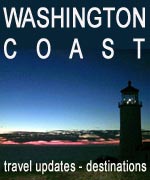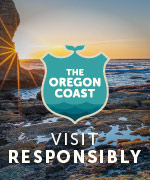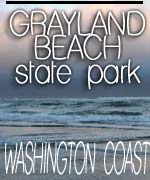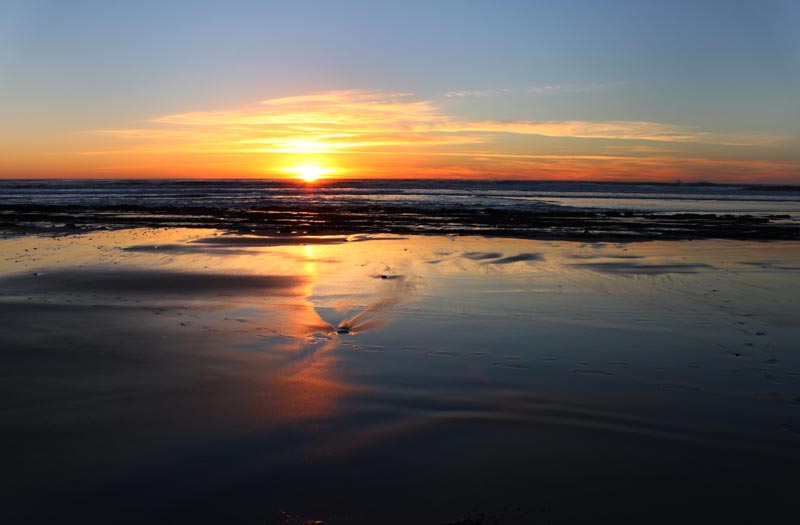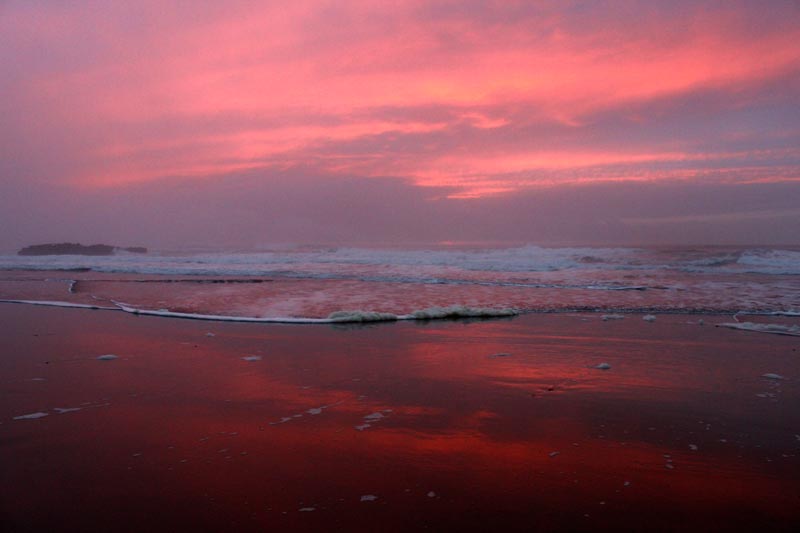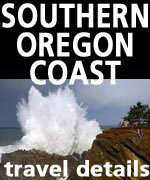What Does First Day of Spring Mean for Oregon / Washington Coast? Look to Skies
Published 03/17/21 at 6:50 PM PDT
By Oregon Coast Beach Connection staff
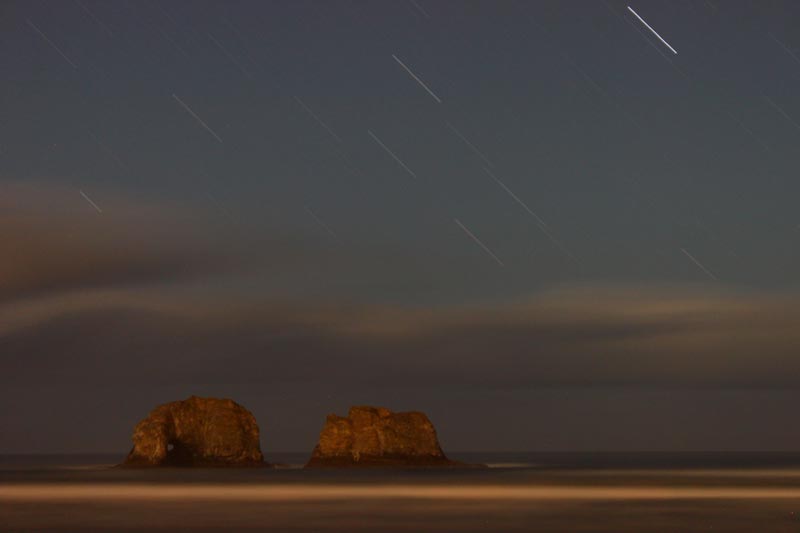
(Long Beach, Washington) – The official end of winter is here, coming on Saturday, March 20. It's also the first day of spring and of spring break along the Oregon coast and Washington coast, where much of the Pacific Northwest's denizens head out for some fun. (Above: Rockaway Beach at night and star fall)
And they forget to look up or check out the skies at night.
Includes exclusive listings; some specials in winter
In Cannon Beach:
Includes rentals not listed anywhere else
In Manzanita, Wheeler, Rockaway Beach:
Some specials for winter
In Pacific City, Oceanside:
Some specials for winter
In Lincoln City:
Some specials for winter
In Depoe Bay, Gleneden Beach:
Some specials for winter
In Newport:
Look for some specials
In Waldport
Some specials for winter
In Yachats, Florence
Some specials for winter
Southern Oregon Coast Hotels / Lodgings
Reedsport to Brookings, places to stay; winter deals
Jim Todd, astronomy expert with Portland's OMSI, said Saturday is the vernal equinox, happening at 2:37 a.m. in Washington and Oregon. There's a lot more going on there than you'd think, all happening in the solar system above us.
“The day on which both the north and south pole of the earth are equal distances towards the sun (92.6 million miles),” he said. “At that instant the sun stands directly over the Earths equator. The first day of spring, called 'the vernal equinox', vernal meaning 'green', and equinox meaning 'equal night', which simply means that on the equinox the hours of daylight are nearly equal to the hours of night.”
Todd said that if you're looking from Portland on March and 21, the noon sun will get to its mid-point in the sky near 45 degrees from the southern horizon. Then comes some other fun with astronomy right at sunset, especially if you're on the coasts of Washington or Oregon.
“On the day of an equinox, it is good day for finding due east and due west from your own backyard,” he said. “Just go outside around sunset or sunrise and notice the location of the sun on the horizon with respect to familiar landmarks.”
This means sunset in places like Long Beach, Washington, Newport or Ophir will show you a sunset directly to the west. That bit of camera fun where you take shots of the sunset in an arch or some structure? That shot will hold some hidden meaning for you. Snap that photo of the sunset through the arch at Brooking's Harris Beach, below Blacklock Point or in between the girders of the wreck of the Peter Iredale and you can forever know that was the point of exact west.
Then Todd clues us all in on a bit of mind-bending science about the seasons.
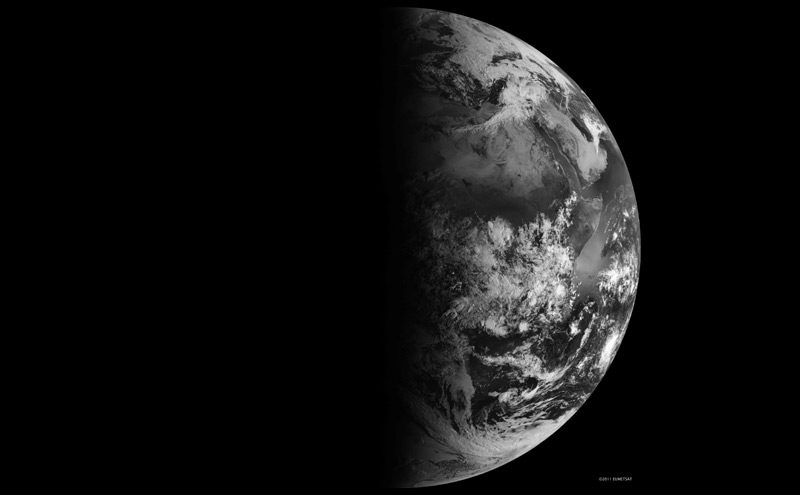
(Above: Earth during the day / night, called the day/night terminator; courtesy NASA)
“Because of the 23.4-degree tilt of the Earth's axis, we receive the Sun's rays most directly in the summer,” Todd said. “In the winter, when we are tilted away from the Sun, the rays pass through the atmosphere at a greater slant, bringing lower temperatures. If the Earth rotated on an axis perpendicular to the plane of the Earth's orbit around the Sun, there would be no variation in day lengths or temperatures throughout the year, and we would not have seasons.”
The other twist in this equinox tale is that while the equinox should be when the hours of daylight and dark would be most evenly divided, Todd said that isn't true. In reality, today – March 17 – is when day and night are closest to being exactly 12 hours each in Portland. Here in Ptown, sunrise is at 7:18 a.m. and sunset is at 7:19 p.m.
Those exact 12-hour divides will be different days, depending on how far south you go into the south Oregon coast are how far north you go into the Washington coastline.
“At the 45th latitude North, the time it takes for the sun to fully rise and set, which is several minutes, is added to the day and subtracted from the night, and therefore the equinox day lasts a little longer than 12 hours,” Todd said. “Another reason why the day is longer than 12 hours on an equinox is that the Earth's atmosphere refracts sunlight. After March 17th, the daylights will be longer than nighttime until September 25th, after the autumnal equinox.”
More Fun in Oregon / Washington Coast Skies
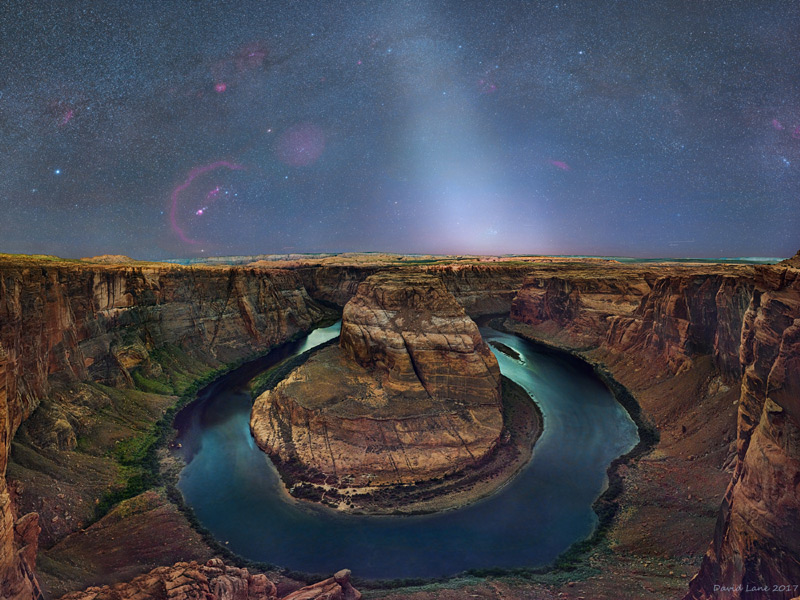
Zodiacal Light in Bend, Oregon - courtesy David Lane
Keep an eye out for the Belt of Venus on clear days. This is a thick band of purple and darker stretches that is at the opposite end of the sky from the sunset.
From March 28 through April 11, we have a chance to see the rare False Sunset / Zodiacal Light. This is a trippy and awe-inspiring sight if you know what you're looking at. MORE PHOTOS BELOW
 Sea Horse Oceanfront Lodging. Oceanfront rooms may start at special prices, depending on month. Vacation Rentals and Romance Suites. Fireplaces, and your pet is welcome.1301 NW 21st Street. Lincoln City, Oregon. 800-662-2101. 541-994-2101. www.SeaHorseMotel.com
Sea Horse Oceanfront Lodging. Oceanfront rooms may start at special prices, depending on month. Vacation Rentals and Romance Suites. Fireplaces, and your pet is welcome.1301 NW 21st Street. Lincoln City, Oregon. 800-662-2101. 541-994-2101. www.SeaHorseMotel.comOregon Coast Hotels for this event - South Coast Hotels - Where to eat - Maps - Virtual Tours
Cannon Beach Lodging
Nehalem Bay Lodgings
Manzanita Hotels, Lodging
Three Capes Lodging
Pacific City Hotels, Lodging
Lincoln City Lodging
Depoe Bay Lodging
Newport Lodging
Waldport Lodging
Yachats Lodging
Oregon Coast Vacation Rentals
Oregon Coast Lodging Specials
More About Oregon Coast hotels, lodging.....
More About Oregon Coast Restaurants, Dining.....
LATEST Related Oregon Coast Articles
The building had also been robbed of pipes and copper by other thieves. True Crime, Astoria, Warrenton
Oregon Coast Crabbing Petition Denied, Rulemaking Process Remains on Course
A petition on procedural matters denied; no major changes yet. Whale
S. Oregon Coast Wind Warnings, Waves Up To 23 Feet
Gusts up to 65 and high waves for the weekend from Reedsport to Brookings. Weather
Newport Latest Oregon Coast Town to Ban Personal Fireworks Year-Round
City countcil voted this week; the pro fireworks display goes on as usual
Hazardous Seas Watch on N. Oregon Coast, S. Washington Coast, Waves Up To 15 Ft
Beaches will require caution but some good wave shows possible
Annual 'Maine' Event Returns to N. Oregon Coast's Seaside Aquarium
February 22 brings the fundraiser to Seaside. Seaside events
From Taking In Cool Oregon Coast Colors on the Patio to Seaside's Action
Review of Seaside's Seashore Inn on the Beach: spectacle with breakfast and your dog. Seaside hotel reviews
Oregon US Coast Guard Team Assists in Olympic National Forest Rescue
Helicopter team from Astoria rescued hikers on Washington's Mount Ellinor
Back to Oregon Coast
Contact Advertise on BeachConnection.net
All Content, unless otherwise attributed, copyright BeachConnection.net Unauthorized use or publication is not permitted
Keywords: Oregon Coast, Washington Coast, travel, astronomy, science, beaches, Westpor, Long Beach, Coos Bay, Seaside, Cannon Beach, Newport, Bandon







